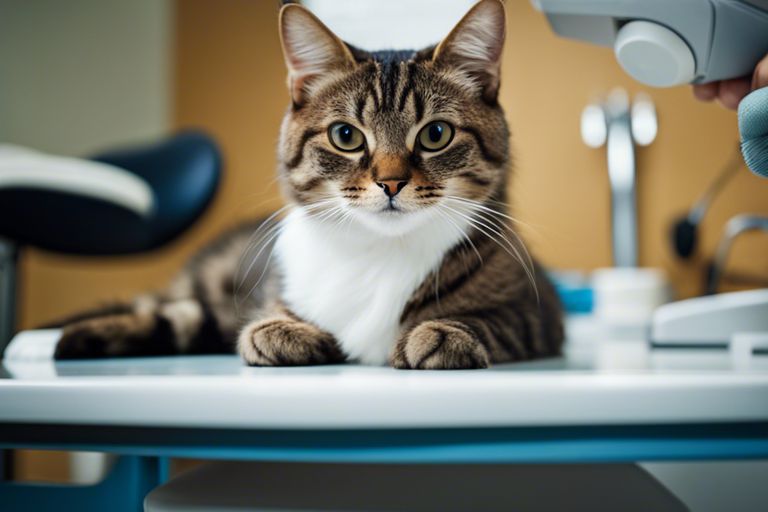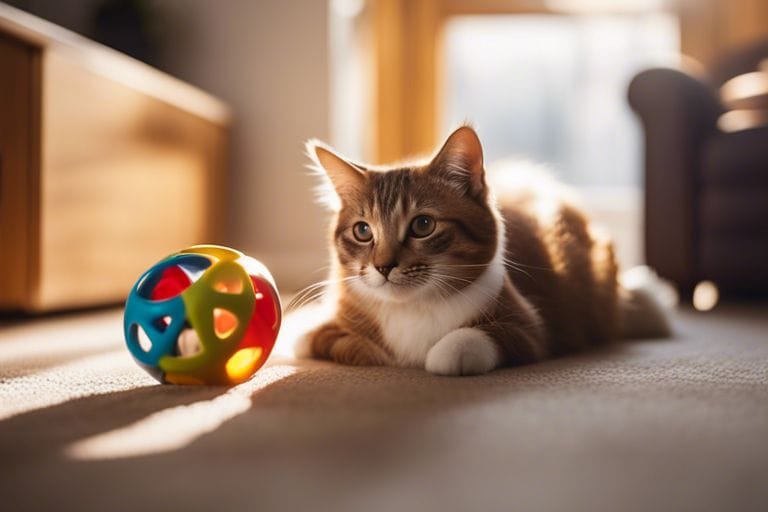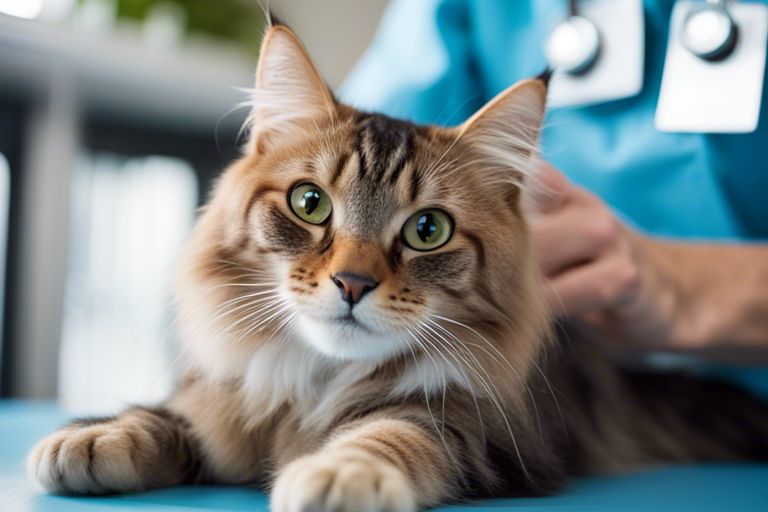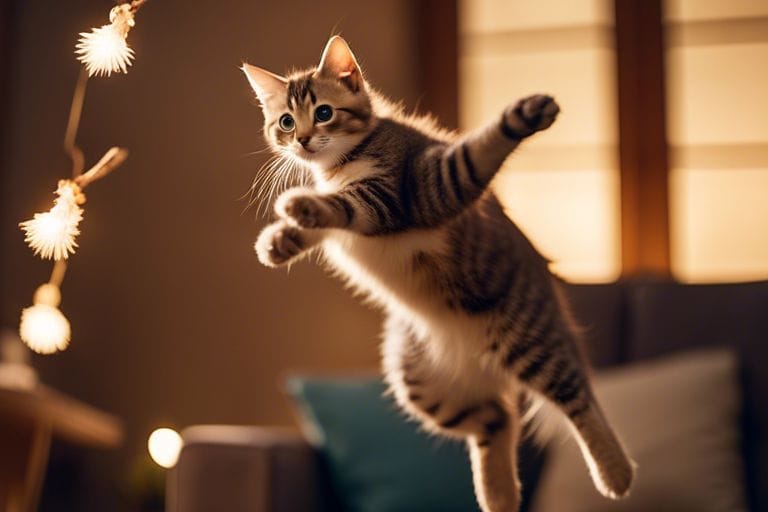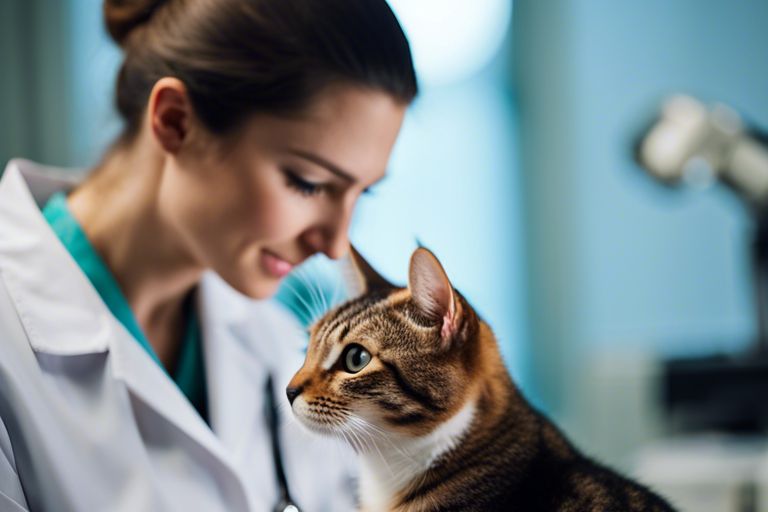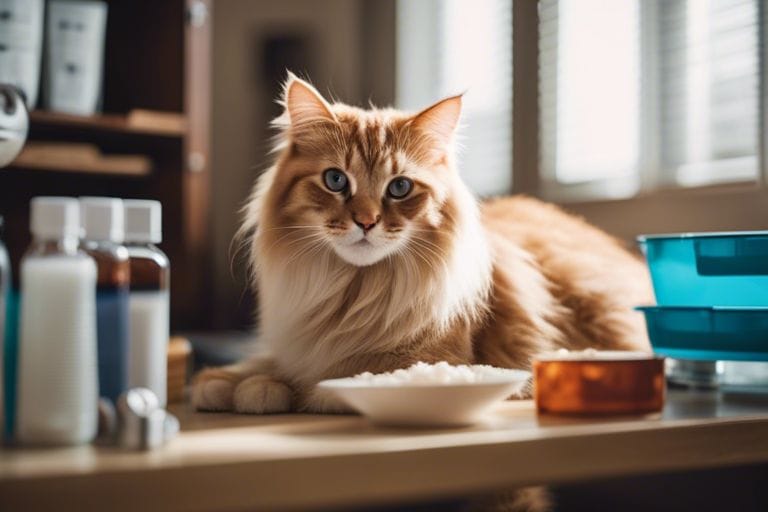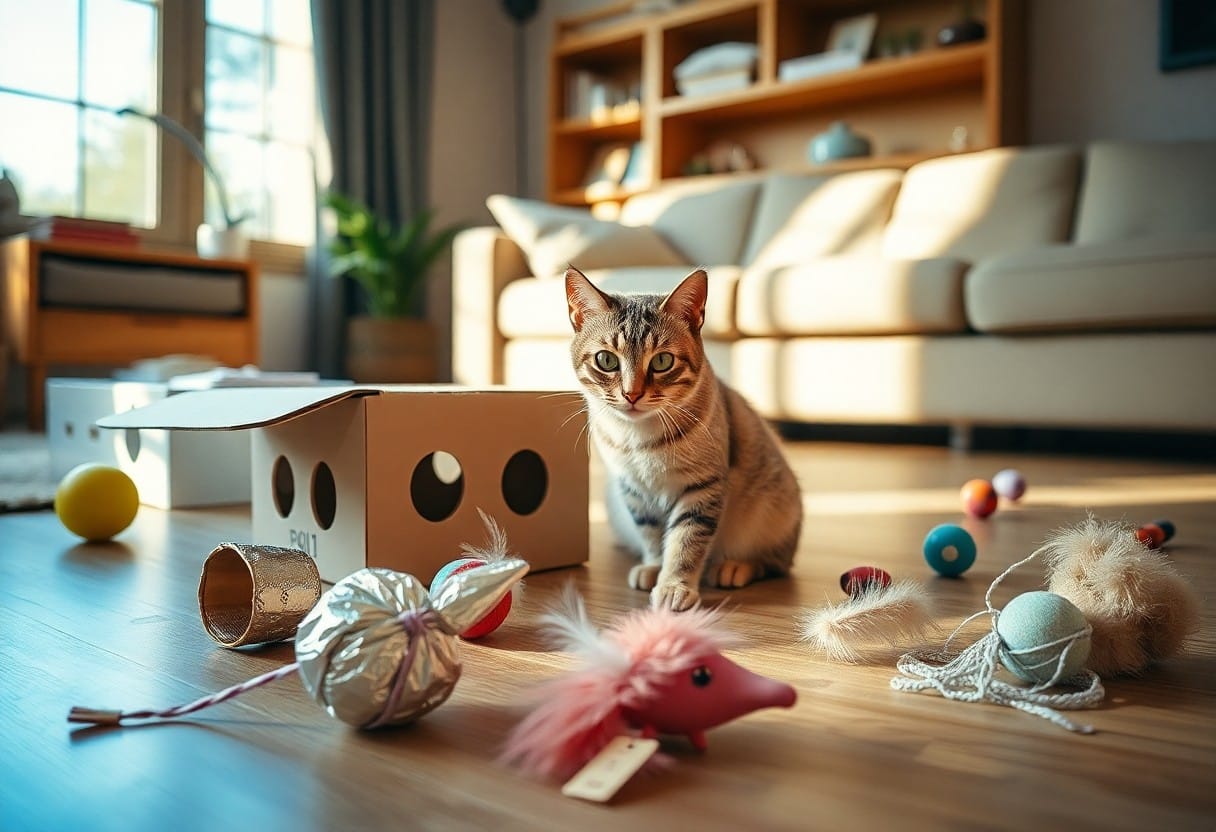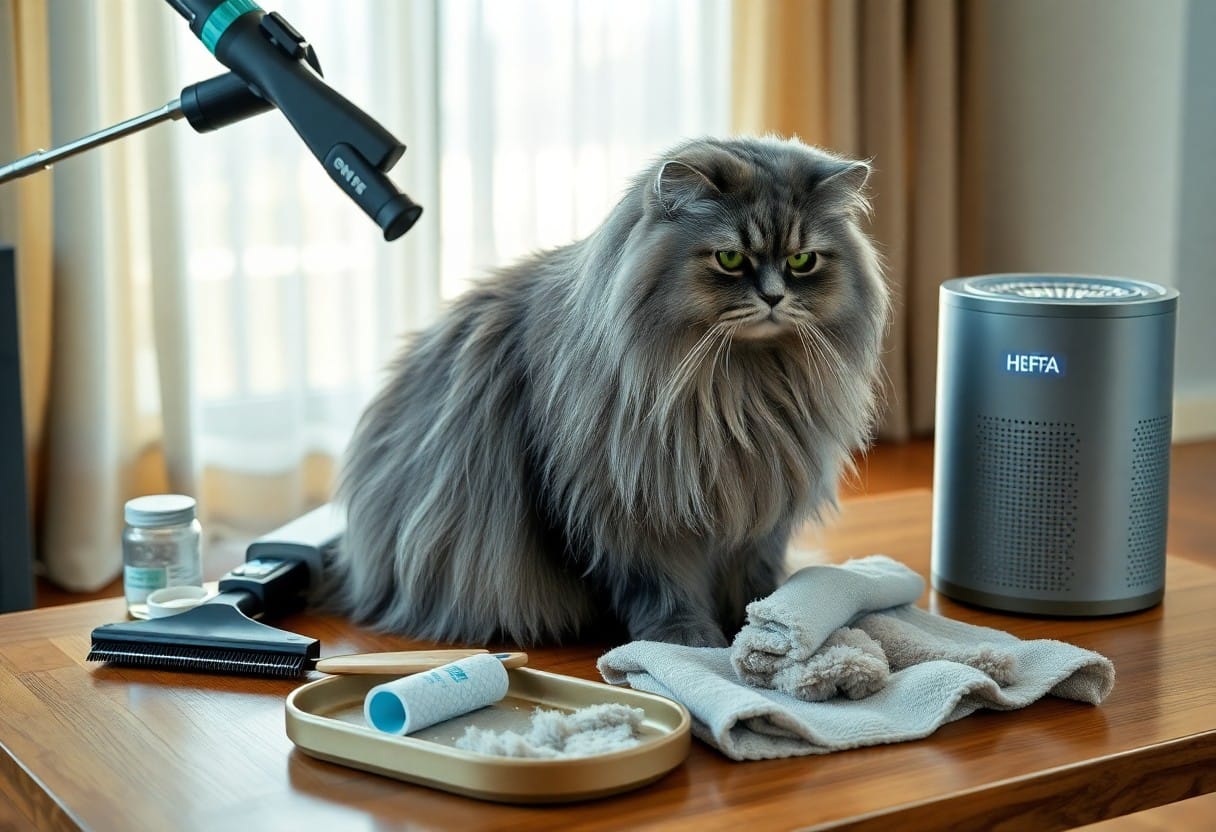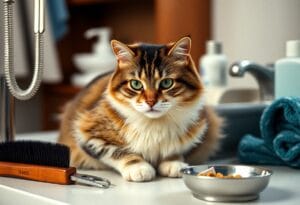You must understand the significance of regular vet check-ups for your beloved feline companions. Just like humans, cats also require routine healthcare to ensure their overall well-being and detect any potential health issues early on. Even if your cat appears healthy, regular check-ups are important for preventive care and to address any underlying health concerns that may not be apparent to you as their caregiver.
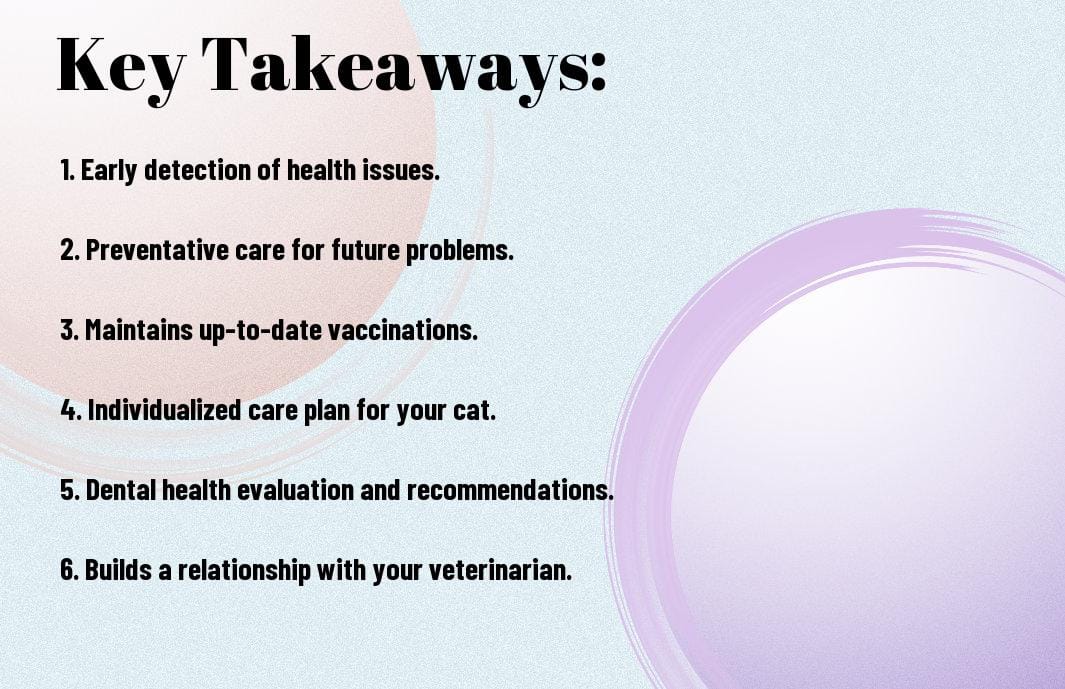
Benefits of Regular Vet Check-Ups
Early Detection of Diseases
An important benefit of regular vet check-ups for your feline companions is the early detection of diseases. Cats are masters at hiding signs of illness, making it challenging for pet owners to identify health concerns in their early stages. However, a trained veterinarian can uncover subtle symptoms that may indicate underlying health issues through a thorough physical examination and diagnostic tests.
By catching diseases early, treatment can be more effective and less invasive, ultimately leading to a better prognosis for your beloved cat. Regular check-ups can help detect common feline health conditions such as kidney disease, diabetes, and dental issues before they progress to more serious stages.
Preventative Care Strategies
Check-ups with your vet also provide an opportunity to discuss and implement preventative care strategies for your feline fur babies. These strategies may include vaccinations, parasite control, dental care, and nutritional counseling tailored to your cat’s specific needs. Preventative care plays a crucial role in maintaining your cat’s overall health and well-being by preventing illnesses before they have a chance to develop.
Another important aspect of preventative care is regular screenings and monitoring for age-related issues in senior cats. As cats age, they become more susceptible to conditions such as arthritis, thyroid problems, and organ dysfunction. With timely check-ups, your vet can recommend appropriate interventions to manage these age-related issues and maintain your cat’s quality of life.

The Importance Of Regular Vet Check-ups For Your Feline Fur Babies
Kittens to Adult Cats
Frequency of vet visits plays a crucial role in the overall health and well-being of your feline companions. Regarding kittens to adult cats, it is recommended to schedule annual check-ups with your veterinarian. These visits allow the vet to monitor your cat’s growth, administer necessary vaccinations, and address any health concerns early on. Regular vet visits also provide an opportunity for discussions about nutrition, behavior, and preventive care tailored to your cat’s specific needs.
Senior Cats
As your cat ages into the senior stage of life, the frequency of vet visits should increase to twice a year. Senior cats are more prone to developing age-related health issues such as arthritis, kidney disease, and dental problems. Bi-annual check-ups enable the vet to closely monitor your cat’s health status, conduct screenings for early detection of common senior cat ailments, and implement appropriate treatment plans. Additionally, these visits allow for adjustments in diet, exercise, and medication to help manage any age-related conditions your cat may be facing.
Regular vet check-ups for senior cats are necessary in ensuring that they maintain a good quality of life as they age. Proactive veterinary care can help extend your cat’s lifespan and minimize the impact of age-related illnesses, allowing your feline friend to enjoy their golden years to the fullest.
Components of a Routine Vet Visit
Many cat owners may underestimate the importance of regular vet check-ups for their feline companions. However, these routine visits play a crucial role in maintaining your cat’s overall health and well-being. During a typical vet visit, several components are vital to ensure your furry friend stays healthy and happy.
Physical Examination
Physical examination is a fundamental part of every routine vet visit for your cat. This involves the veterinarian checking your cat’s overall body condition, including weight, skin and coat condition, eyes, ears, and teeth. The vet will also listen to your cat’s heart and lungs, palpate the abdomen, and check for any abnormalities. Through a thorough physical examination, potential health issues can be identified early, allowing for prompt treatment and intervention.
Vaccinations and Parasite Control
Parasite control and vaccinations are vital components of a routine vet visit for your feline companion. Vaccinations help protect your cat from serious and potentially fatal diseases such as rabies, feline leukemia, and feline distemper. Similarly, parasite control, including flea and tick prevention, deworming, and heartworm prevention, is vital for keeping your cat healthy and free from parasitic infections.
The veterinarian will discuss with you the appropriate vaccination schedule and parasite control measures based on your cat’s lifestyle, age, and risk factors. By staying up-to-date on vaccinations and parasite control, you can help safeguard your cat’s health and prevent many common diseases and infections.
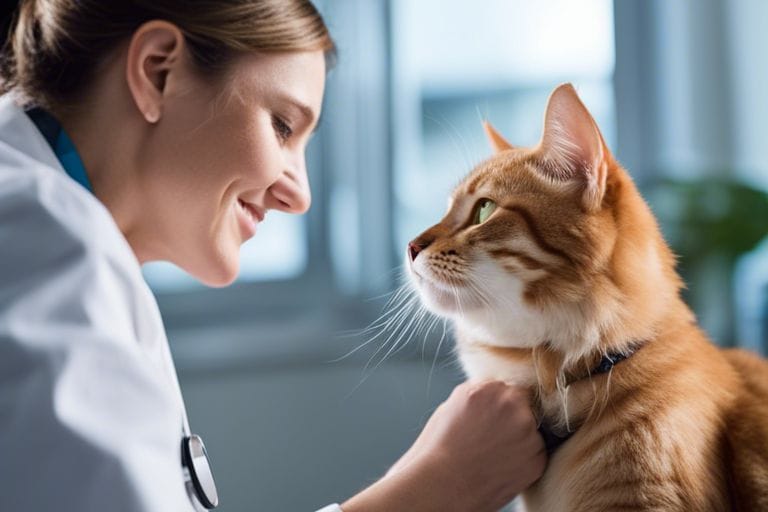
The Significance of Dental Health
Now, let’s research into the importance of dental health for your feline companions. Just like humans, cats need regular dental care to prevent dental problems that can lead to pain, infections, and other serious health issues. Dental issues such as periodontal disease can impact your cat’s overall well-being, so it’s crucial to pay attention to their oral health.
Identifying Dental Problems
One common sign of dental problems in cats is bad breath. If your cat’s breath is consistently foul-smelling, it could indicate an underlying dental issue that needs to be addressed by a veterinarian. Other signs to watch out for include difficulty eating, drooling, pawing at the mouth, and inflamed gums. Regular dental check-ups can help catch these issues early on and prevent them from worsening.
Maintenance of Oral Hygiene
Hygiene is crucial for maintaining your cat’s oral health. Brushing your cat’s teeth regularly with a pet-specific toothbrush and toothpaste can help prevent plaque and tartar buildup. Additionally, providing dental treats or toys designed to promote oral hygiene can also aid in keeping your cat’s teeth and gums healthy. Taking these preventive measures can go a long way in ensuring your cat’s dental health and overall well-being.
Another important aspect of oral hygiene is scheduling routine dental cleanings with your veterinarian. Professional cleanings can remove stubborn plaque and tartar that brushing alone may not be able to address. Your veterinarian can also perform a thorough examination of your cat’s teeth and gums during these cleanings to catch any potential issues early on.
Nutritional Counseling and Weight Management
Tailored Diet Plans
To keep your feline fur babies healthy and happy, it’s crucial to provide them with a nutritionally balanced diet that meets their specific needs. Nutrition plays a vital role in your cat’s overall well-being, influencing their weight, coat quality, and energy levels. When considering tailoring a diet plan for your cat, factors such as age, breed, activity level, and any underlying health conditions must be taken into consideration.
Consulting with your veterinarian for personalized nutritional counseling can help you create a tailored diet plan that ensures your cat receives the right balance of imperative nutrients. Whether your fur baby needs a weight management diet or has specific dietary requirements, a customized plan can help them thrive and maintain optimal health.
Obesity Prevention and Management
Counseling on obesity prevention and management is a crucial aspect of feline healthcare. Obesity in cats can lead to various health issues, including diabetes, arthritis, and heart disease. By addressing weight management early on, you can help prevent these conditions and keep your furry friend in top shape.
Tailored guidance on portion control, appropriate feeding schedules, and the importance of regular exercise can assist in managing your cat’s weight effectively. Your veterinarian can provide valuable insights and support to help you create a structured plan that promotes a healthy weight and overall well-being for your feline companion.
Behavioral Assessments
Despite our best efforts to keep our feline friends happy and healthy, behavioral issues can arise. Regular vet check-ups are vital in identifying and addressing these concerns before they escalate.
Recognizing Behavioral Issues
Assessments for behavioral issues in cats can include observing their interactions with their environment and with other pets in the household. Signs of stress, anxiety, or aggression may manifest through changes in eating habits, excessive grooming, inappropriate elimination, or destructive behavior. These behaviors can indicate underlying medical conditions or environmental stressors that need attention.
Addressing Behavioral Concerns and Training
Training cats may not be as straightforward as training dogs, but addressing behavioral concerns is still important for a harmonious relationship with your pet. Positive reinforcement techniques, like clicker training and interactive play, can help modify unwanted behaviors and encourage desirable ones. Consistency, patience, and understanding your cat’s individual needs are key to successful training and behavior modification.
It is important to consult with a veterinarian or a feline behaviorist if you are struggling to address persistent behavioral issues in your cat. Together, you can develop a tailored plan to improve your fur baby’s well-being and strengthen your bond.
Emergency Care and Chronic Condition Monitoring
Once again, regular vet check-ups are crucial for maintaining your feline fur baby’s health. In emergency situations, quick action is vital to ensure the well-being of your beloved pet. Understanding when to seek immediate veterinary attention can make a significant difference in the outcome of any health crisis.
When to Seek Immediate Veterinary Attention
Attention: If you notice any sudden changes in your cat’s behavior, such as lethargy, loss of appetite, difficulty breathing, vomiting, diarrhea, or any signs of distress, it is vital to seek immediate veterinary care. Cats are experts at hiding pain or illness, so even subtle changes in behavior should not be ignored. Delaying treatment in an emergency can worsen your cat’s condition and potentially jeopardize their life.
Managing Long-Term Health Issues
As far as managing long-term health issues in your feline companion, consistency is key. Regular monitoring and follow-up appointments with your vet are vital to ensure that any chronic conditions, such as diabetes, kidney disease, or arthritis, are well-managed. Your vet may recommend a specific treatment plan, including medication, dietary changes, or lifestyle adjustments to help your cat live a comfortable and healthy life.
Another important aspect of managing long-term health issues in cats is maintaining an open line of communication with your vet. Be observant of your cat’s behavior and any changes in their condition, and report them to your vet promptly. By working together with your vet and following their recommendations, you can provide the best possible care for your feline fur baby and improve their quality of life.
Summing up
Drawing together the importance of regular vet check-ups for your feline fur babies, it is crucial to prioritize their health and well-being. These routine visits allow for early detection and prevention of potential health issues, ensuring a longer and happier life for your beloved pets. By partnering with your veterinarian and staying proactive in scheduling regular check-ups, you are taking a proactive step in providing the best care possible for your furry companions.
Keep in mind, your feline friends rely on you to advocate for their health, and regular vet check-ups are a vital aspect of fulfilling that responsibility. So, make sure to stay on top of their healthcare needs and schedule those check-ups regularly to give your furry companions the best chance at a healthy and fulfilling life.
FAQ
Q: Why are regular vet check-ups important for my feline fur babies?
A: Regular vet check-ups are crucial for maintaining the overall health and well-being of your feline companions. These visits allow a veterinarian to detect any potential health issues early, provide necessary vaccinations, and offer preventive care to ensure your fur babies live long and healthy lives.
Q: How often should I take my cat to the vet for check-ups?
A: It is recommended to take your cat to the vet for check-ups at least once a year. However, senior cats or those with existing health conditions may require more frequent visits. Your veterinarian can advise you on the best schedule based on your cat’s individual needs.
Q: What can I expect during a regular vet check-up for my cat?
A: During a regular vet check-up, your cat will receive a comprehensive physical examination, including checks on weight, heart rate, dental health, and overall body condition. The veterinarian may also recommend routine tests, such as bloodwork or fecal analysis, to assess your cat’s internal health.
Q: How can regular vet check-ups save me money in the long run?
A: By detecting and addressing potential health problems early through regular vet check-ups, you can prevent costly treatments or surgeries that may arise from untreated conditions. Investing in preventive care for your cat can ultimately save you money on expensive medical bills down the road.
Q: What are some signs that my cat may need to see a vet sooner than scheduled?
A: It’s important to be aware of any changes in your cat’s behavior, appetite, litter box habits, or overall appearance. If you notice symptoms such as lethargy, vomiting, diarrhea, excessive thirst, or sudden weight loss, contact your veterinarian immediately to schedule an earlier check-up. Early intervention can make a significant difference in your cat’s prognosis and quality of life.
